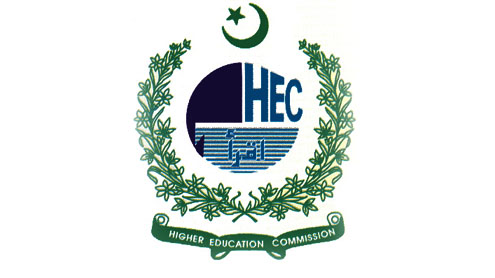 The entire rigmarole over the devolution of the Higher Education Commission (HEC) has reached new heights of misunderstanding and suspicion. Since mention of the HEC’s devolution to the provinces started, the matter has remained cloudy in the heads of most casual observers. Therefore, it merits a little clarity to distinguish the black from the white.The 18th Amendment was initiated, developed and passed in parliament after broad consensus of all political parties across the board. A very important aspect of this amendment was its commitment to decreasing the excessive over-centralisation of government procedures, policies, ministries and affairs. Among other ministries that were to be devolved from the centre to the provinces — to ensure them greater autonomy — was the ministry of education, a fact that was outlined when the 18th Amendment was passed. The process of devolution of ministries started some months back and quite a few ministries have already made their way to provincial portfolios. However, despite this consensus and despite complete constitutional obligation to fulfil these tasks, protests have erupted on the streets, educational institutes and among some academics to reverse the devolution of the HEC. They have cited everything from fear of losing precious scholarships, cutting off of foreign educational aid, an end to ‘mega’ educational projects and the like.
The entire rigmarole over the devolution of the Higher Education Commission (HEC) has reached new heights of misunderstanding and suspicion. Since mention of the HEC’s devolution to the provinces started, the matter has remained cloudy in the heads of most casual observers. Therefore, it merits a little clarity to distinguish the black from the white.The 18th Amendment was initiated, developed and passed in parliament after broad consensus of all political parties across the board. A very important aspect of this amendment was its commitment to decreasing the excessive over-centralisation of government procedures, policies, ministries and affairs. Among other ministries that were to be devolved from the centre to the provinces — to ensure them greater autonomy — was the ministry of education, a fact that was outlined when the 18th Amendment was passed. The process of devolution of ministries started some months back and quite a few ministries have already made their way to provincial portfolios. However, despite this consensus and despite complete constitutional obligation to fulfil these tasks, protests have erupted on the streets, educational institutes and among some academics to reverse the devolution of the HEC. They have cited everything from fear of losing precious scholarships, cutting off of foreign educational aid, an end to ‘mega’ educational projects and the like.
These loud and angry voices are now making their presence felt in the National Assembly. Due to the, reportedly, ‘manufactured’ concerns of the HEC, the political parties voiced their concern over the issue on Tuesday with the PML-N wishing to distance itself from a matter it termed a “federal subject”. The PPP was anxious to get on with its commitment of devolution and the ANP stood fast on having the devolution take place. No matter how big the white elephant in the room — the HEC — one sentiment was constant: too many rumours and conspiracies had blown the affair way out of proportion. It is a known fact that in a heavily over-centralised state such as ours, the more autonomy granted to the provinces, the more independent and efficient they will become. The HEC is not being trashed in the centre per se; it is being replaced by the Commission for Standard Higher Education, which will do exactly what its name suggests: quality control and maintaining the standard of educational requirements such as the curriculum, etc. Other educational matters will be deliberated upon and resolved by the provinces.
It is now the duty of each province to make sure that this devolution occurs in the smoothest manner possible. What needs to be scrutinised are not the haphazard allegations that are being pushed forth by vested interests on something that is a constitutional obligation, but how well the provinces stand up to the task of evolving the educational ministries under their watch. Those tasked with this provincial ministry should be men and women of enlightenment and progressive thought. They should ensure the development of education in their respective provinces to the best of their abilities — that is where the public debate ought to begin. This matter is a constitutional one reached by mass consensus. Those who are disrupting the process are doing so at the real cost of education — by holding it hostage to their allegations without giving the devolution process a fair chance. – Dailytimes












